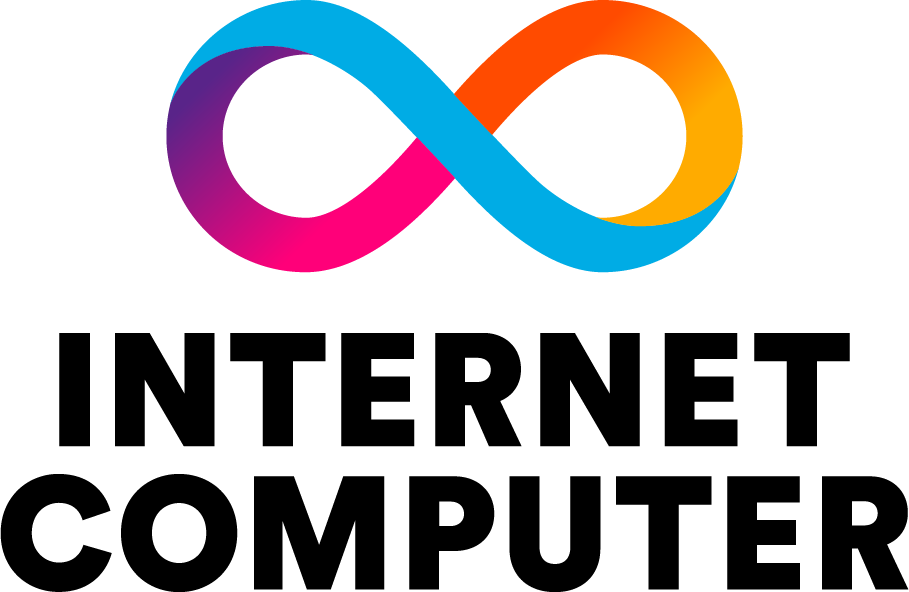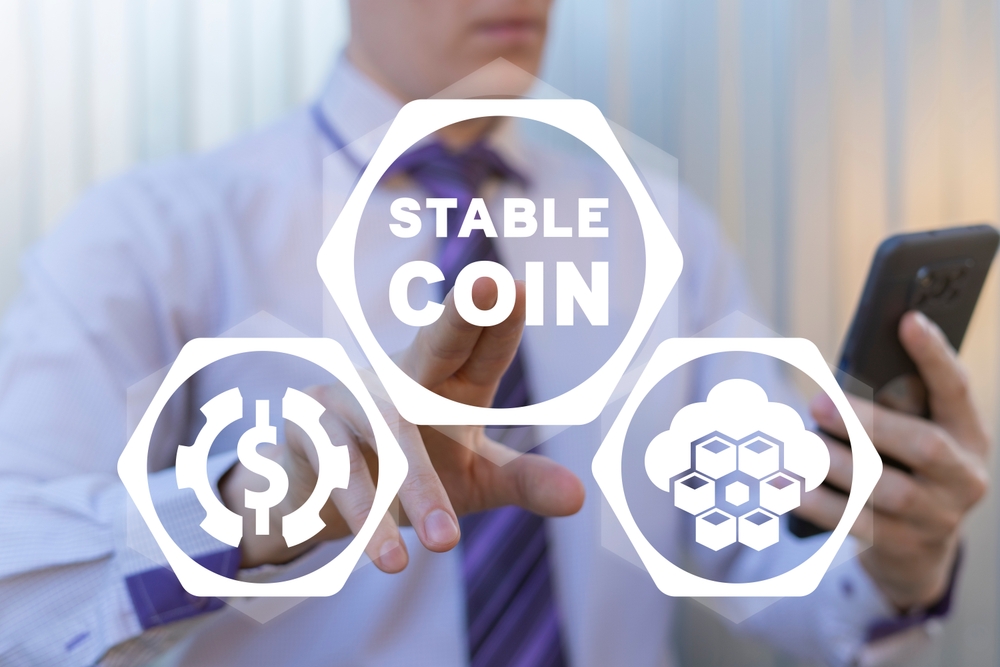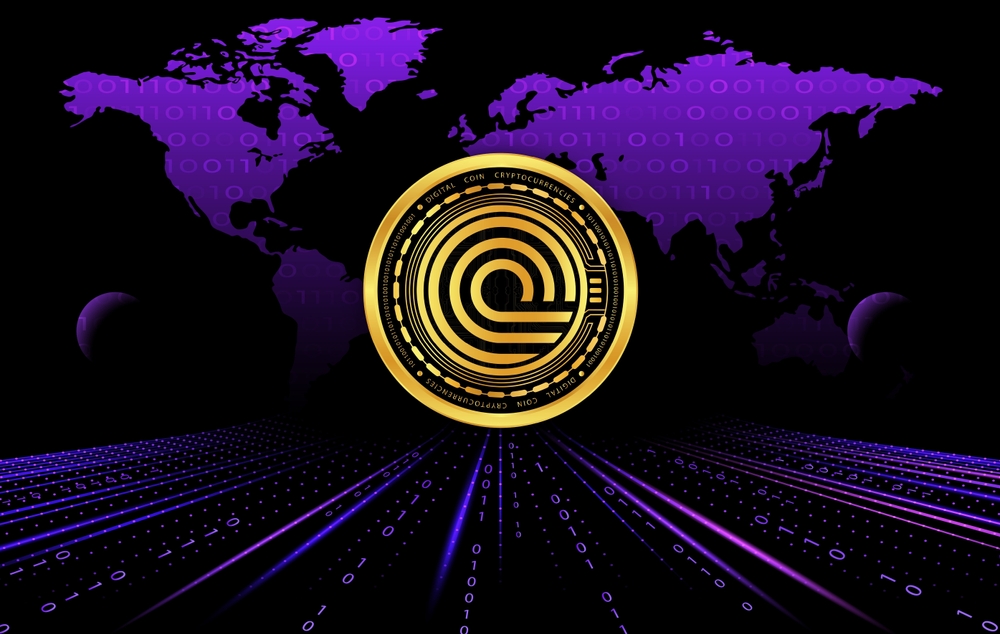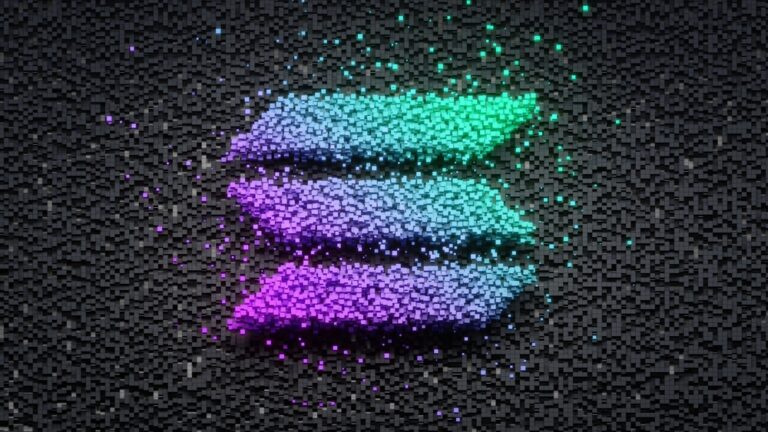Table of Contents
ToggleICP: A Comprehensive Look at the Crypto Project Internet Computer
The Internet Computer Protocol (ICP) is a blockchain-based project that aims to revolutionize the internet by creating a decentralized network that is more secure, efficient, and scalable than traditional IT systems. ICP is designed to enable developers to build decentralized applications (Dapps) that can run on a global network of computers, rather than relying on centralized servers. The project is led by the DFINITY Foundation, a non-profit organization that is committed to advancing the development of blockchain technology.

ICP is built on a unique architecture that enables it to process transactions and execute smart contracts at lightning-fast speeds. The project uses a novel consensus mechanism called “Threshold Relay” that allows it to achieve high levels of security and scalability, while also ensuring that the network remains decentralized. With its advanced technology and innovative approach to blockchain development, ICP has quickly become one of the most promising projects in the blockchain ecosystem.
Key Takeaways
- ICP is a blockchain-based project that aims to revolutionize the internet by creating a decentralized network that is more secure, efficient, and scalable than traditional IT systems.
- ICP is designed to enable developers to build decentralized applications (Dapps) that can run on a global network of computers, rather than relying on centralized servers.
- ICP uses a unique architecture and consensus mechanism called “Threshold Relay” that allows it to achieve high levels of security and scalability, while also ensuring that the network remains decentralized.
Understanding the Internet Computer

The Internet Computer is a decentralized blockchain-based project that aims to create a new kind of internet. It was created by DFINITY, a Swiss non-profit foundation, with the goal of providing a more secure, efficient, and open internet.
The Vision of a Decentralized Internet
The Internet Computer aims to create a decentralized internet that is not controlled by any single entity. It envisions a world where data is owned and controlled by the users themselves, not by large corporations or governments. This would allow for greater privacy, security, and transparency, as well as more efficient and cost-effective services.
How the Internet Computer Works
The Internet Computer is built on a decentralized blockchain network that uses a unique consensus mechanism called Threshold Relay. This mechanism allows the network to reach consensus quickly and efficiently, without the need for energy-intensive mining. It also allows for high-speed transactions and smart contract execution.
The Internet Computer also uses a novel approach to data storage called Orthogonal Persistence. This allows for data to be stored directly on the blockchain, rather than on separate servers. This makes the system more efficient, secure, and resistant to attacks.
The Role of ICP Token
ICP is the native token of the Internet Computer network. It is used to power the network and pay for transactions and smart contract execution. It also plays a key role in the governance of the network, allowing token holders to vote on important decisions such as protocol upgrades and network changes.
Overall, the Internet Computer project has the potential to revolutionize the way we think about the internet. By creating a more decentralized, secure, and efficient network, it could pave the way for a new era of innovation and growth.
Technology Behind ICP

ICP is a blockchain project that aims to provide a decentralized internet infrastructure. The technology behind ICP is designed to provide high-speed transactions, scalability, and security. In this section, we will explore the key technologies that enable ICP to achieve its goals.
Chain Key Technology
Chain Key Technology is a core feature of ICP. It is a cryptographic protocol that enables the creation of secure and scalable blockchain networks. Chain Key Technology provides a secure and efficient way to manage the state of the network, ensuring that all transactions are processed correctly.
Network Nervous System (NNS)
The Network Nervous System (NNS) is a unique feature of ICP. It is a decentralized management system that allows the network to evolve and adapt to changing conditions. The NNS is responsible for managing the network’s resources, including nodes, canisters, and other components. It also allows the community to vote on key decisions that affect the network’s development.
Node Structure and Functionality
ICP’s node structure and functionality are designed to provide a high level of security and scalability. Nodes are responsible for processing transactions and maintaining the integrity of the network. They are also responsible for storing and managing the network’s data. ICP’s node structure is designed to be decentralized, with nodes distributed across the network. This ensures that the network is resilient to attacks and can continue to operate even if some nodes fail.
In conclusion, ICP’s technology is designed to provide a secure, scalable, and decentralized internet infrastructure. Chain Key Technology, the Network Nervous System, and the node structure and functionality are key components of ICP’s technology stack. These technologies work together to provide a high-speed, secure, and scalable blockchain network that can support a wide range of applications.
ICP’s Smart Contract Ecosystem

ICP’s smart contract ecosystem is designed to provide a secure and efficient platform for developers to build and deploy decentralized applications. The ecosystem includes several features that make it stand out from other blockchain platforms. In this section, we will discuss some of the key features of ICP’s smart contract ecosystem.
Canister Smart Contracts
ICP’s smart contract ecosystem is built around the concept of “canister smart contracts.” These contracts are designed to be lightweight and efficient, which makes them ideal for building decentralized applications. Canister smart contracts can be written in either Motoko or Rust programming languages.
Motoko and Rust Programming Languages
Motoko is a new programming language developed specifically for ICP’s smart contract ecosystem. It is designed to be easy to learn and use, which makes it ideal for developers who are new to blockchain development. Rust is another programming language that can be used to write canister smart contracts. Rust is a popular language among developers due to its speed and security features.
End-to-End Security
ICP’s smart contract ecosystem is designed to provide end-to-end security for developers and users. The platform includes several security features, such as secure communication channels, secure storage, and secure execution environments. These features help to ensure that decentralized applications built on ICP are secure and reliable.
In conclusion, ICP’s smart contract ecosystem is a robust and efficient platform for building decentralized applications. The platform’s canister smart contracts, Motoko and Rust programming languages, and end-to-end security features make it an ideal choice for developers who are looking to build secure and reliable decentralized applications.
Decentralized Applications (Dapps)

Decentralized Applications (Dapps) are a key feature of the Internet Computer Protocol (ICP) blockchain. Dapps are built on top of the ICP blockchain and are accessible through canisters. The ICP blockchain provides a secure and decentralized platform for developers to build and deploy Dapps.
Building and Deploying Dapps
Developers can build and deploy Dapps on the ICP blockchain using the Internet Computer’s canister technology. This allows developers to create decentralized apps that can run on a secure and decentralized platform. The ICP blockchain provides a secure and decentralized platform for developers to build and deploy Dapps.
Dapps and Web Speed
Dapps built on the ICP blockchain can take advantage of the platform’s high speed and low latency. This means that Dapps can be built to be highly responsive and fast, providing a great user experience. The ICP blockchain is designed to provide fast and efficient processing of transactions, making it an ideal platform for building Dapps that require high speed and low latency.
Governance and Autonomous Functions
The ICP blockchain provides a platform for building Dapps that have autonomous functions. This means that Dapps can be built to operate without human intervention, using smart contracts and other autonomous functions. The ICP blockchain also provides a platform for building Dapps that have decentralized governance systems. This allows Dapps to be governed by a decentralized community of users, rather than a centralized authority.
In conclusion, Dapps are an important feature of the ICP blockchain. Developers can build and deploy Dapps on the ICP blockchain using the Internet Computer’s canister technology. Dapps built on the ICP blockchain can take advantage of the platform’s high speed and low latency, providing a great user experience. The ICP blockchain also provides a platform for building Dapps that have autonomous functions and decentralized governance systems.
Internet Computer vs. Traditional IT

The Internet Computer Protocol (ICP) is a decentralized network that aims to provide a new paradigm for computing. In this section, we will compare ICP with traditional IT and explore the advantages of a sovereign network.
Comparison with Cloud Services
ICP is different from traditional IT in that it is a fully decentralized network that allows developers to build powerful applications without relying on cloud providers. With ICP, developers can build and deploy applications directly on the network, without the need for a centralized cloud provider. This means that developers can create applications that are more secure, transparent, and resilient than traditional cloud services.
Impact on Computing Costs
ICP has the potential to dramatically reduce computing costs by eliminating the need for expensive cloud providers. By building on a sovereign network, developers can avoid the high costs associated with traditional cloud services, such as server maintenance, data storage, and bandwidth. This can lead to significant cost savings for businesses and individuals alike.
Advantages of a Sovereign Network
One of the key advantages of a sovereign network like ICP is that it is more secure and transparent than traditional cloud services. With ICP, developers can build applications that are resistant to censorship and tampering, as the network is decentralized and cannot be controlled by a single entity. Additionally, the transparent nature of the network ensures that all transactions are visible to all participants, which helps to prevent fraud and corruption.
In summary, ICP represents a new paradigm for computing that is more secure, transparent, and resilient than traditional IT. By eliminating the need for centralized cloud providers, ICP has the potential to dramatically reduce computing costs and provide a more secure and transparent network for developers.
ICP and the Broader Blockchain Ecosystem

Internet Computer Protocol (ICP) is a blockchain-based project that aims to create a decentralized and open internet. It is designed to be highly scalable, secure, and interoperable with other blockchains. ICP’s unique architecture allows it to run smart contracts and decentralized applications (dApps) at web speed, without sacrificing security or decentralization.
Interoperability with Other Blockchains
ICP is designed to be interoperable with other blockchains, including Ethereum. This interoperability allows ICP to leverage the strengths of other blockchains while maintaining its own unique features. For example, ICP can use Ethereum’s smart contract functionality to create new dApps, while still maintaining its own on-chain governance system.
Contribution to the DeFi Ecosystem
ICP is also contributing to the decentralized finance (DeFi) ecosystem. It offers a number of features that are designed to make DeFi more accessible and user-friendly. For example, ICP’s governance system allows users to vote on proposals and make decisions about the future of the network. Additionally, ICP’s low transaction fees and fast transaction times make it an attractive option for DeFi users.
ICP’s Position in Web3
ICP is positioning itself as a key player in the web3 ecosystem. Web3 refers to the next generation of the internet, which is expected to be more decentralized, open, and transparent than the current web2. ICP’s unique architecture and features make it well-suited to the web3 ecosystem. For example, ICP’s on-chain governance system allows users to participate in the decision-making process, which is a key feature of the decentralized web3.
In summary, ICP is a promising project that is contributing to the broader blockchain ecosystem. Its interoperability with other blockchains, contribution to the DeFi ecosystem, and position in web3 make it a unique and valuable addition to the blockchain space.
Governance, Consensus, and Tokenomics

Network Governance through NNS
The Internet Computer Protocol (ICP) is governed by the Network Nervous System (NNS), which is a decentralized platform that allows token holders to participate in network governance by voting on proposals. The NNS is responsible for managing the ICP network, including upgrades, protocol changes, and resource allocation.
The NNS is composed of neurons, which are entities that hold ICP tokens and participate in network governance. Neurons can vote on proposals, delegate their voting power to other neurons, and earn rewards for their participation. The NNS also includes a reputation system that rewards neurons for their contributions to the network.
ICP Token Economics
ICP is the native token of the Internet Computer Protocol and is used to pay for network resources, such as computation and storage. The total supply of ICP is fixed at 469,213,710 tokens, and new tokens are minted through a combination of network rewards and transaction fees.
ICP tokens are also used to participate in network governance through the NNS. Neurons must hold a minimum amount of ICP to participate in governance, and the amount of voting power a neuron has is proportional to the amount of ICP it holds.
Voting and Neurons
ICP token holders can participate in network governance by creating neurons and voting on proposals through the NNS. Neurons can vote on proposals related to network upgrades, protocol changes, and resource allocation.
Neurons can also delegate their voting power to other neurons, which allows for more efficient and effective participation in network governance. Delegating voting power can also help neurons earn rewards for their participation in network governance.
In conclusion, the Internet Computer Protocol (ICP) is governed by the Network Nervous System (NNS), which is a decentralized platform that allows token holders to participate in network governance through voting and delegation. ICP tokens are used for network resource payments and participation in network governance. Neurons, which hold ICP tokens, participate in network governance by voting on proposals and delegating their voting power to other neurons.
ICP’s Real-World Applications

The Internet Computer Protocol (ICP) blockchain has gained popularity due to its unique approach to blockchain technology. It aims to provide a platform that can host smart contracts and decentralized applications without the need for third-party intermediaries. This section explores some of the real-world applications of ICP.
Social Media and Community
ICP has the potential to revolutionize the way social media platforms operate. It can enable social networks to operate in a decentralized manner, removing the need for centralized servers and intermediaries. This can lead to increased privacy and security for users. Additionally, ICP can facilitate the creation of new social media platforms that are built on decentralized technologies, allowing users to have more control over their data.
Enterprise Solutions and Services
ICP can be used to build enterprise solutions and services that are more secure and efficient. It can enable the creation of decentralized applications that can automate processes and reduce the need for intermediaries. This can lead to cost savings and increased efficiency for businesses.
Games and the Metaverse
ICP can be used to create decentralized games and metaverse applications. It can enable the creation of non-fungible tokens (NFTs) that can be used to represent in-game items and assets. This can lead to increased ownership and control for players. Additionally, ICP can facilitate the creation of decentralized metaverse applications that can be used for socializing, gaming, and more.
Overall, ICP has the potential to revolutionize various industries by providing a more secure and efficient platform for decentralized applications. Its unique approach to blockchain technology can enable the creation of new applications and services that were not possible before.
Investing in Internet Computer

Internet Computer (ICP) is a cryptocurrency project that has been gaining a lot of attention in recent years. As with any investment, it is important to understand the basics before diving in. This section will provide an overview of investing in ICP, including information on investors and funding, trading ICP tokens, and understanding market value.
ICP Investors and Funding
ICP has received significant funding from a number of prominent investors, including Polychain Capital and Coinbase. Binance, one of the world’s largest cryptocurrency exchanges, has also listed ICP on its platform. These investments have helped to drive the project’s growth and popularity.
Trading ICP Tokens
ICP tokens can be bought and sold on a number of different cryptocurrency exchanges. As with any investment, it is important to do your research and choose a reputable exchange. It is also important to keep in mind that the value of ICP tokens can be volatile, so it is important to stay up to date on market trends and news.
Understanding Market Value
The market value of ICP is determined by a number of different factors, including supply and demand, market sentiment, and overall market trends. It is important to keep track of these factors in order to make informed investment decisions. Additionally, it is important to remember that the cryptocurrency market can be unpredictable, so it is important to invest only what you can afford to lose.
Overall, investing in ICP can be a potentially lucrative opportunity for those who are willing to do their research and stay up to date on market trends. As with any investment, it is important to approach it with caution and to only invest what you can afford to lose.
Challenges and the Future of ICP
Addressing Centralization Concerns
One of the biggest challenges facing ICP is the concern over centralization. While the project aims to create a decentralized network, there are concerns that the current structure of the network is too centralized. To address these concerns, the ICP team is working on developing new protocols and technologies that will help to increase the decentralization of the network.
Research and Development
ICP is a project that is heavily focused on research and development. The team behind the project includes some of the top researchers and cryptographers in the field. They are constantly working to improve the technology behind ICP and to develop new applications for the network.
Long-Term Vision and Goals
ICP has a long-term vision that goes beyond just creating a decentralized network. The project aims to create a new kind of internet that is more secure, more efficient, and more accessible than the current internet. To achieve this goal, the ICP team is working on developing new technologies and protocols that will help to create a more decentralized and secure internet.
Overall, the future of ICP looks bright. With a strong team of researchers and developers behind the project, and a clear vision for the future, ICP has the potential to revolutionize the way we use the internet. However, there are still challenges that need to be addressed, particularly around the issue of centralization. But with the right protocols and technologies in place, ICP has the potential to become a truly decentralized network that is more secure and accessible than anything that has come before it.
Frequently Asked Questions
What is the current price of ICP?
As of March 23, 2024, the current price of ICP is not available. However, interested parties can check the latest price of ICP on cryptocurrency exchanges such as Binance, Coinbase, or Kraken.
How does the Internet Computer Protocol work?
The Internet Computer Protocol (ICP) is a decentralized blockchain-based platform that aims to provide a secure and scalable environment for building and deploying smart contracts and dApps. It utilizes a unique consensus mechanism called the Chain Key Technology, which enables the network to scale horizontally.
What are the latest developments in the Internet Computer project?
The Internet Computer project is continuously evolving, with new updates and features being added regularly. Some of the latest developments include the launch of the ICP mainnet, the integration of new smart contracts, and the addition of new nodes to the network.
Can the Internet Computer (ICP) be considered a viable long-term investment?
As with any investment, there are risks involved in investing in ICP. However, the Internet Computer project has gained significant traction in the crypto community, and its unique features and growing user base make it a potential long-term investment opportunity.
What are the unique features that differentiate the Internet Computer from other crypto projects?
One of the unique features of the Internet Computer is its scalability. The Chain Key Technology consensus mechanism allows the network to scale horizontally, making it possible to handle large volumes of transactions. Additionally, the Internet Computer project aims to provide a seamless user experience by integrating with existing web technologies.
What are the predictions for ICP’s value in the future?
Predicting the future value of any cryptocurrency is challenging, and ICP is no exception. However, some analysts predict that the growing user base and unique features of the Internet Computer project could lead to an increase in the value of ICP over time.












